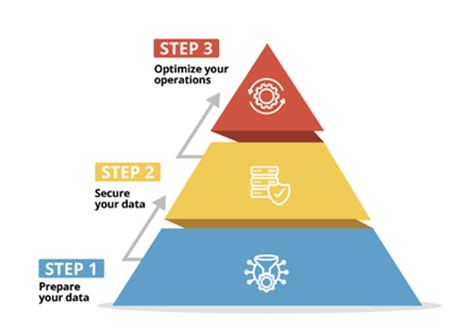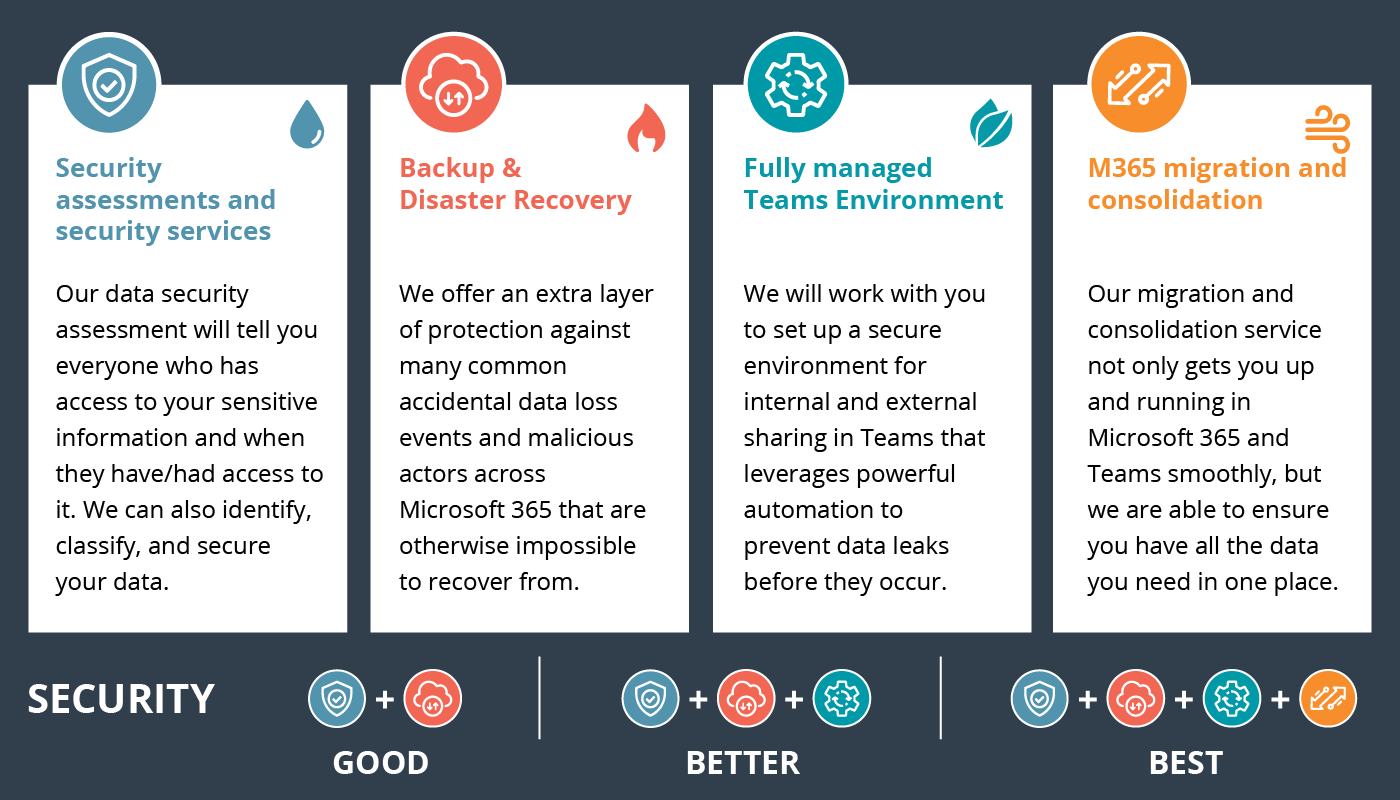Modern businesses rely heavily on IT assistance because of the ever-changing nature of the digital landscape. Everything is online now. A reliable, consistent, and strong IT infrastructure is crucial for every organization, as it helps with everything — from maintaining operational systems, safeguarding sensitive data, and navigating the cybersecurity.
It’s a very complex field with a wide range of tasks to do. That’s why businesses are always faced with a crucial decision: should they go for in-house IT support or opt for outsourcing companies with managed IT services?
We’ve been in the IT industry for years now and have seen both in-house and outsourced IT support models work brilliantly for many companies. The trick is figuring out which one is ideal for your specific situation. Today, we’ll discuss the advantages and disadvantages of each choice and provide some advice on making your final decision.
What is In-House IT Support?
In-house IT support refers to a team of information technology (IT) professionals who are employed directly by your company
as an internal team. They can work either on-site or remotely and are responsible for handling all of your organization's IT needs, from day-to-day troubleshooting to long-term strategic planning. Why and how can this option be beneficial?
Greater control and customization
Control over your technological infrastructure is one of the most significant aspects of having your IT needs met in-house. Since they work
only for your business, your in-house team may modify existing procedures and develop new ones to meet your unique requirements. They’re also within reach at all times.
Faster response times
Time is of the utmost importance when dealing with any kind of IT problem. In-house IT assistance often provides quicker response times than third-party providers. With in-house IT support, issues may be resolved and systems restored promptly, reducing the likelihood of costly downtime and resulting revenue loss.
In-depth knowledge of company processes and systems
In-house IT staff get an in-depth familiarity with your business's infrastructure over time. Because of their deep familiarity, they are better equipped to diagnose problems and provide solutions. In this scenario, having more information at your disposal may help your company's IT department run more smoothly and efficiently.
Potential for increased data security
When it comes to protecting sensitive information, companies of any size may benefit from having their own dedicated IT department on staff. It will be simpler to monitor, identify, and react to possible attacks if your IT personnel are familiar with the company's security rules and procedures. Also, the potential for data breaches associated with disclosing private information to third-party service providers is mitigated if IT assistance is handled in-house.
Of course, these benefits don't come without a cost, and in-house IT support may not be the right fit for every organization. And that’s not to say outsource IT support can’t give you any of these benefits either.
What is Outsourced IT Support?
As the name suggests, “outsourced” IT support means that your company hires an external IT service provider or team member to handle some or all of your technology needs. These individuals can be local or global, and they offer a range of services, from basic helpdesk support to comprehensive managed IT services. What can they bring to the table?
Cost-effective
Cost is a major factor for many companies, especially smaller and medium-sized ones. As opposed to recruiting and keeping an in-house IT team, outsourcing IT support might be more cost-effective since you only shell out for what you actually need. In addition, the provider will take care of their team's continuous training and certification, saving you money.
Here’s a sample computation:
In-House IT Support Costs:
Salaries:
a. IT Manager: $80,000 per year
b. IT Support Specialist (2 positions): $50,000 per year each
Total: $180,000 per year
Benefits (health insurance, retirement, etc.): 20% of salaries
Total: $36,000 per year
Training and certifications: $5,000 per year
Recruitment and hiring: $5,000 (one-time cost)
Total In-House IT Support Costs: $226,000 (first year), $221,000 (subsequent years)
Outsourced IT Support Costs:
Managed IT Services Provider (MSP): $2,500 per month for comprehensive support
Total: $30,000 per year
Access to a broader range of expertise
The technological landscape is enormous, and it's perpetually expanding. When you outsource your IT support, you have access to specialists with a wide variety of expertise, making it simpler to take on specialized or complicated tasks. Need help with cloud migration or implementing a new cybersecurity strategy? Chances are, your outsourced IT provider has someone on their team who's been there, done that, and can lend a helping hand.
Scalability to accommodate business growth
Your need for IT will grow in conjunction with the expansion of your company. When you outsource your IT, you have the flexibility to raise or reduce the level of service provided as needed. You can adjust to changes without adding new employees and the associated costs of training and supervising them. It's like having a dedicated IT support staff that can scale with your business and meet any new difficulties head-on.
Frees up internal resources for core business tasks
When you outsource your IT assistance, you allow your in-house staff to concentrate on what they're good at: advancing the company's primary goals. Since your outsourced service provider handles the technical details, your team is free to focus on revenue-generating and growth-oriented activities.
In a nutshell
Both in-house and outsourced IT support approaches, as we've seen, have their advantages and disadvantages. More control, quicker reaction times, in-depth understanding of corporate systems, and maybe higher data security are all benefits of having IT assistance on-site. On the other side, outsourcing IT support may save money, provide you access to additional areas of knowledge, make your firm more scalable, and free up your own staff to focus on what you do best.
You should coordinate your IT services with your company's objectives and resources. Your choice should be based on what will help your business succeed in the long term, while also taking into account the specific difficulties and needs of your sector and company.
In the end, there is no universal way to offer IT helpdesk support. The option you choose should reflect your specific requirements, goals, and situation in the company. Take your time, give the considerations we've outlined, and don't be reluctant to seek outside assistance if necessary. Making the best selection for your company's IT infrastructure management is a crucial step on the road to sustained expansion and success.




